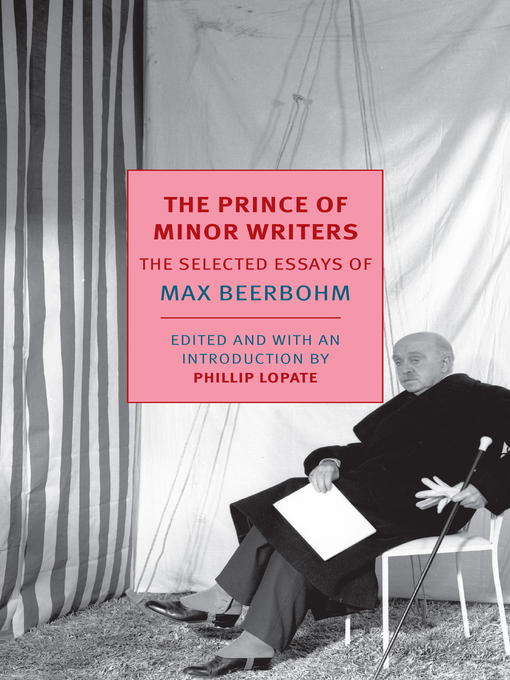
The Prince of Minor Writers
The Selected Essays of Max Beerbohm
کتاب های مرتبط
- اطلاعات
- نقد و بررسی
- دیدگاه کاربران
نقد و بررسی

April 13, 2015
Compiling 50 pieces by noted English essayist and caricaturist Beerbohm, editor Lopate (To Show and to Tell) invites modern readers to appreciate the scope of Beerbohm’s writing. Virginia Woolf called Beerbohm “the prince of his profession” and his “minor” works provide a glimpse of daily life in the 19th and early 20th centuries, revealing that while manners and dress have evolved, human nature certainly has not. For this alone, Beerbohm’s essays deserve to be revisited today. At its best, his writing is humorous and self-deprecating. His stories of observing a nine-year-old build a sandcastle (“Something Defeasible”) or discovering his favorite hat box stripped of its railway labels (“Ichabod”) may prove more gratifying and relatable to modern readers than his satirical discussions of Goethe (“Quia Imperfectum”) or the behavior of servants (“Servants”). Beerbohm’s longer essays, apart from his touching portrait of his elder brother, “From a Brother’s Standpoint,” can be summed up by his own quote about James McNeill Whistler in “Whistler’s Writing”: “An exquisite talent... is always at its best on a small scale. On a large scale it strays and is distressed.” In this substantial collection, however, the gems certainly outweigh the duds.

March 15, 2015
Elegant essays by a self-described dilettante.Known for "his light ironic touch," deft parodies and caricatures, and sly observations about literature, art, and, simply, taste, Max Beerbohm (1872-1956) was among the most prominent English essayists. Though praised as a gifted stylist, he considered himself a minor figure, "what obituary notices call 'an interesting link with the past.' " Editor Lopate (Director, Nonfiction Writing/Columbia Univ.; Portrait Inside My Head, 2013, etc.), however, sees in the precision and cadence of Beerbohm's prose much to be admired, amply exemplified by the pieces he gathers, representing Beerbohm's observations of British character and culture from 1896 to 1946. In an essay on the disappointing quality of oratory at the House of Commons, for example, Beerbohm remarks laconically that among 670 men elected by the British public, no one should expect "a very high average of mental capacity." He recalls his contemporaries: Aubrey Beardsley; the "legendary" Swinburne, "sole kin to the phoenix"; and his older half brother, Herbert, a flamboyant actor. Accompanying him on an American tour, he noted that Herbert loved traveling, "instantly responsive" to "the magic of New York....He was not the kind of tourist who takes a homemade tuning-fork about with him and condemns the discords." Beerbohm was not as social, never a perfect guest, but "slightly to the churlish side....And, though I always liked to be invited anywhere, I very often preferred to stay at home." Overcome with envy of another writer, he threw her novel into "the yawning crimson jaws" of a fireplace, frustrated by how slowly it burned. He also comments dryly on hero worship: "It is a wholesome exercise which we ought to all take, now and again. Only, let us not strain ourselves by overdoing it." Urbane, witty pieces by a writer worth reviving.

























دیدگاه کاربران